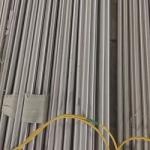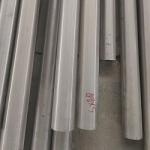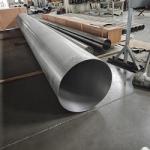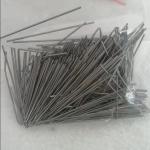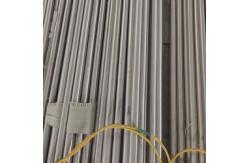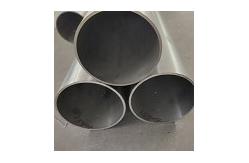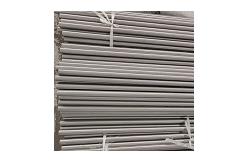In demanding aerospace and industrial environments, material
performance is non-negotiable. Our engineered titanium
solutions—Grades 1, 2, 7, 12, and 16—offer an optimal blend of
corrosion resistance, mechanical strength, and thermal stability.
Whether exposed to aggressive chemicals, seawater, or high-pressure
systems, these grades are purpose-built to endure without
compromising structural integrity. Our corrosion-resistant titanium materials are tailored to meet the
demands of mission-critical systems where downtime is not an option
and failure is not acceptable. Titanium Grade Comparison: Key Properties & Applications| Grade | Corrosion Resistance | Strength | Weldability | Notable Features | Typical Applications |
|---|
| GR1 | Excellent (CP Titanium) | Low | Excellent | Highest ductility, ideal for forming | Chemical processing, desalination systems | | GR2 | Excellent | Moderate | Excellent | Balance of strength and corrosion resistance | Aerospace airframes, heat exchangers | | GR7 | Outstanding (with Pd) | Similar to GR2 | Excellent | Palladium alloyed for enhanced acid resistance | Chlorine-rich environments, nuclear systems | | GR12 | Very High | High | Good | Ti-Ni-Mo alloy with superior crevice corrosion resistance | Heat exchangers, marine systems | | GR16 | Exceptional (with Pd) | Moderate | Excellent | High corrosion resistance under oxidizing and reducing conditions | Industrial piping, pollution control systems |
Sectors That Rely on These MaterialsAerospace: Lightweight strength and corrosion resistance for airframes,
engine components, and hydraulic systems. Chemical Processing: Resistance to aggressive acids and solvents, ideal for reactors,
piping, and storage. Marine Engineering: Non-corroding performance in saltwater environments; used in
submarine systems and offshore platforms. Energy & Power: Reliability in high-pressure, high-temperature systems including
nuclear reactors and condensers. Environmental Systems: Durability in flue-gas desulfurization units and pollution
control infrastructure. |

